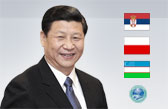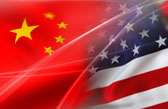New Japanese ambassador to China named
By ZHANG YUNBI (China Daily) Updated: 2012-11-23 01:49Japan's Cabinet named the country's new ambassador to China on Thursday as calls to show toughness on the Diaoyu Islands dispute with China poured in from major frontrunners ahead of the mid-December election.
Observers predicted the islands dispute will be further overblown in the weeks leading up to the start of the election on Dec 16, and the Cabinet will not ease its grip on the issue before handing over the top seats.
Masato Kitera, Japan's assistant chief cabinet secretary since 2011, was appointed as the country's new ambassador to China during a cabinet meeting on Thursday morning.
The new mission for Kitera, 60, marked the end of a months-long waiting period for a successor to Uichiro Niwa, who had been blasted within Japan for straying from Tokyo's hard-line stance on the Diaoyu Islands dispute when interviewed by Financial Times in June.
Kitera's appointment will take effect on Monday. The veteran diplomat graduated from Tokyo University and started his career in the Japanese Foreign Ministry in 1976.
Wang Ping, a researcher on Japanese studies at the Chinese Academy of Social Sciences, said the new ambassador could make a difference, but it will "remain limited".
"A major improvement in the bilateral ties is dependent on the policies and stances of both governments, especially Japan," Wang said.
Japan stole the Diaoyu Islands, which have belonged to China for centuries, at the end of the 1894-95 Sino-Japanese War. Key post-war legal documents including the Declaration of Cairo returned the islands to China.
In an article published on Wednesday in the International Herald Tribune, Japanese Foreign Minister Koichiro Gemba said his country cannot make any concessions regarding the Diaoyu Islands, and he accused China of changing "the status quo".
"If Japan defines the so-called status quo as its illegal grab and its so-called actual control of the Diaoyu Islands, I want to stress that China will never acknowledge or accept that," Chinese Foreign Ministry spokeswoman Hua Chunying told reporters on Thursday.
During the ASEAN summits just days ago in Phnom Pehn, Cambodia, Japan tried to internationalize the maritime disputes with China, and "the move shows why the ruling Cabinet will not soften its grip on its future steps concerning the islands", Wang said.
Meanwhile, radical defense proposals were drafted by Japan's main opposition Liberal Democratic Party election campaign platform.
Liu Yedan and Xinhua contributed to this story.







